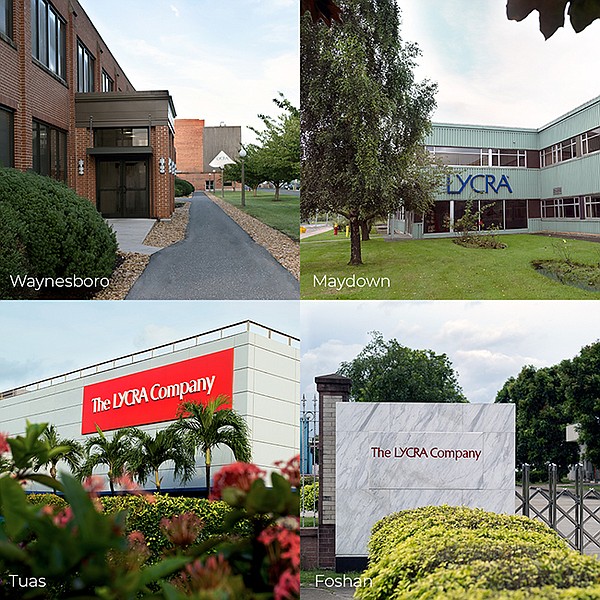SUSTAINABILITY
LYCRA Sets Goal of 80 Percent Higg Verification by 2024
LYCRA is as close to a household name as a fiber maker can get, but there’s nothing like industry validation to assure you stay at the forefront of innovation.
The company recently announced that several of its manufacturing sites had their Higg Facility Environmental Module (Higg FEM) and Higg Facility Social & Labor Module (Higg FSLM) self-assessments verified by an independent third party, achieving scores in the top quartile.
The Lycra Company’s manufacturing sites in Waynesboro, Va.; Maydown, Northern Ireland; and Foshan, China, completed verification for the Higg FEM module, while its Tuas, Singapore, and Maydown sites completed verification for the Higg FSLM module. Higg reviews air emissions, energy usage, environmental-management systems, wastewater, waste, chemical management and water usage. LYCRA’s goal is to have sites representing 80 percent of its fiber production be Higg FEM verified by 2024.
“LYCRA strives to be an industry leader for sustainability by utilizing credible and independently verified data,” said Alan McElreavey, operations sustainability program manager. “The Higg facilities modules are widely used within the apparel industry to assess the environmental impact of manufacturing facilities, to uncover opportunities for improvement and to measure our progress against established baseline performance. Completing the Higg facility modules drives behaviors that become embedded in our company, enhancing our sustainability culture and creating measurable change.”
“Higg FEM is aligned with our goals in key impact areas and helps us improve our sustainability profile and operate as a good corporate citizen,” said Hector Chapa, the Waynesboro-site business integration manager. “It also supports two pillars of our Planet Agenda sustainability platform: corporate responsibility and manufacturing excellence.”
LYCRA’s Singapore and Northern Ireland manufacturing sites also completed third-party verification of their Higg FSLM, with scores in the top quartile. This self-assessment provides insights into social progress and labor conditions at each site, including compensation and health and safety, and identifies areas for continuous improvement.
“Our upstream and downstream customers are increasingly asking suppliers like us to provide independent certifications that assess the environmental impact of their facilities, as well as social and labor practices in the workplace,” said Kok Beng Chew, Asia Pacific regional operations director.






















